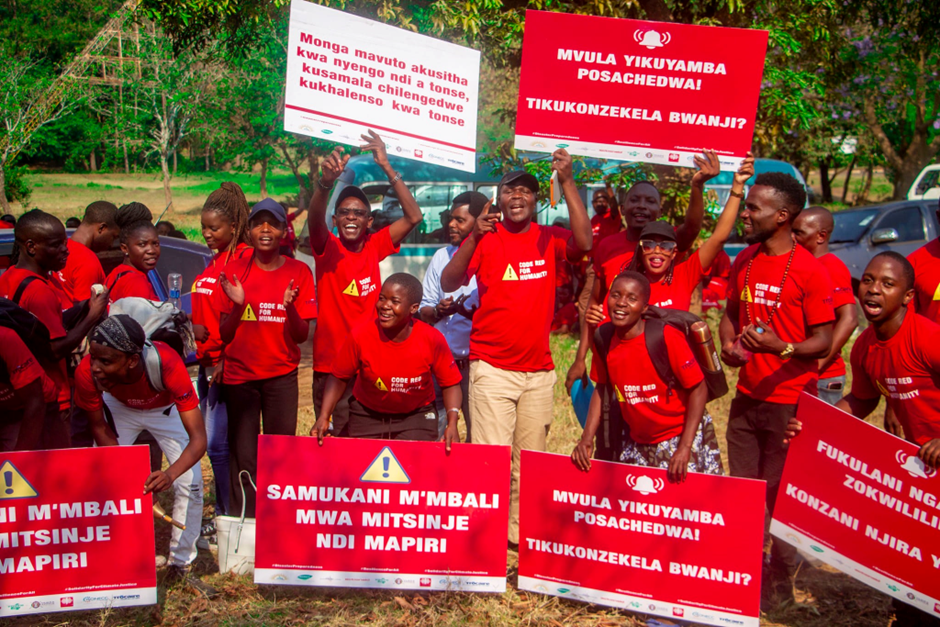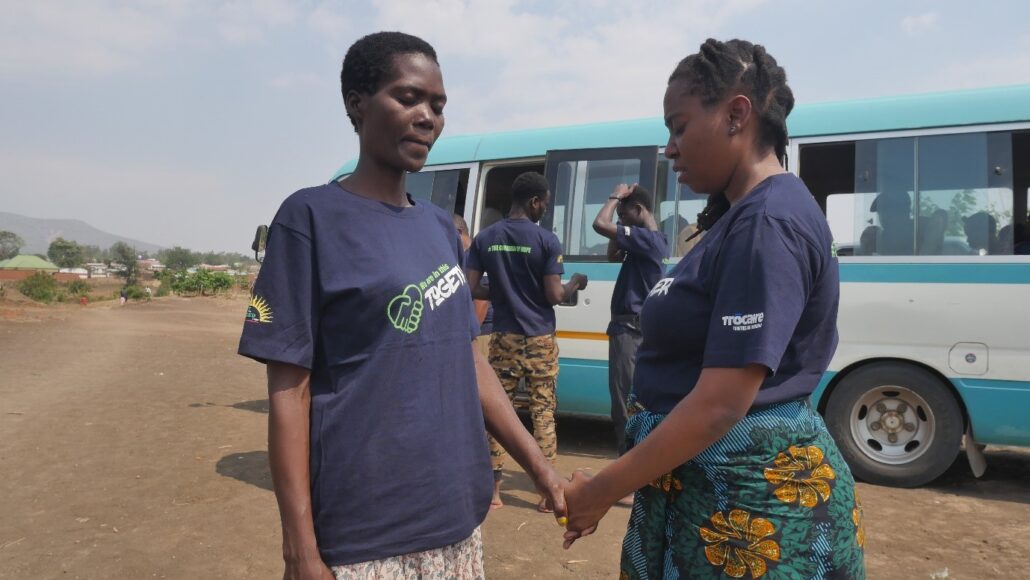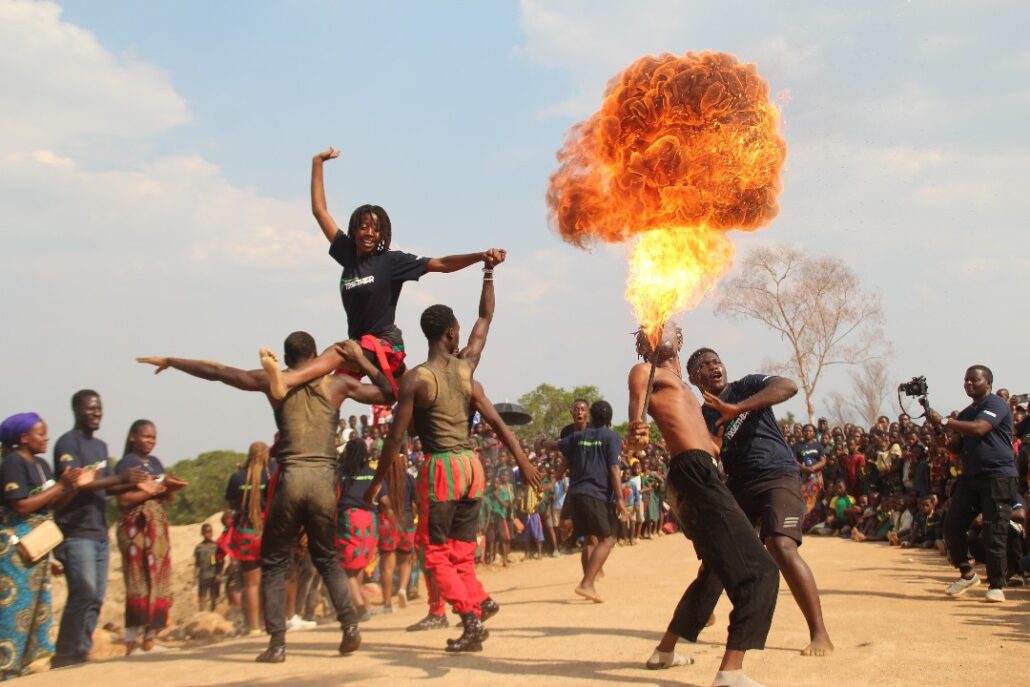
Ahead of World Day of Social Justice, Martha Phiri, the Policy and Advocacy officer with the Jesuit Centre for Ecology & Development (JCED) in Malawi writes about an exciting project centred on climate justice and amplifying the voices of the marginalised and voiceless.
Social justice and climate justice go hand in hand and we are proud to partner with JCED who are making waves, not only in Malawi, but globally too, having attended COP28 the 28th annual United Nations climate meeting (UNFCCC) last year, to focus discussions on climate around communities who are affected most.
Martha shares with us the work of JCED and the ‘Caravan of Hope’ – which addresses climate change head on not only be environmental advocacy but advocating for supports for victims of natural disasters and crucial disaster risk management in policy and government action.
Malawi is reeling from the devastating effects of climate change. The majority of the rural farming population in Malawi, faced with unreliable climate and old farming techniques, find themselves hit hard by the climate crisis. Recurring cyclones striking one after the other, causing widespread destruction and loss of life have become common.
Amid the climate crisis and climate-induced disasters, JCED walks with communities most affected by the effects of the climate crisis through the Caravan of Hope (CoH). Using storytelling and arts, the CoH seeks to capture and amplify the voices of communities on the margins affected by climate change.
In October 2023, thirty-eight young people from Southern Africa embarked on a CoH tour to capture and amplify stories of communities on the margins affected by climate change. The caravan focused on farmers engaged in resilient building to the effects of climate change in Kasungu District and the survivors of Cyclone Freddy in southern Malawi. In March 2023, Cyclone Freddy brought untold miseries to the southern part of Malawi through significant damage to infrastructure, crops, livelihoods, loss of life and injuries to people.
The tour under the theme, “We Are in This Together,” brought together young climate justice champions from various disciplines and backgrounds passionate about caring for the environment. Using their diverse talents, they collaborated to make the tour memorable.
 The CoH is about community immersion, listening sessions, healing, and accompaniment sessions through arts. During these experiences, participants gained a deeper understanding of the loss and damage caused by the impacts of climate change. Participants witnessed the hardships faced by the affected communities and learned about the resilience interventions implemented by these communities to adapt to the effects of climate change.
The CoH is about community immersion, listening sessions, healing, and accompaniment sessions through arts. During these experiences, participants gained a deeper understanding of the loss and damage caused by the impacts of climate change. Participants witnessed the hardships faced by the affected communities and learned about the resilience interventions implemented by these communities to adapt to the effects of climate change.
The participants brought hope to the visited communities and an assurance that we are together in this climate crisis. The CoH provided psychosocial support to thousands of people through accompaniment, listening, and healing sessions. It has also given voice to marginalized communities, amplifying their underrepresented perspectives in local and global climate platforms. Some Survivors of Cyclone Freddy received the necessary resources following the CoH.
Code Red For Humanity

Tamba Africa perform for community
As one of the ways of giving a voice to marginalized communities affected by climate change, JCED organized the “Code Red” for Humanity weekend in Blantyre City. The campaign aimed to demand ambitious and urgent climate action from leaders on behalf of marginalized communities suffering from the effects of climate change.
The campaign started with a high-level engagement meeting bringing together key players in climate disaster risk management such as humanitarian workers, academics, journalists, community leaders, the youth, and government officials. The meeting assessed Malawi’s preparedness and responsiveness to climate-induced disasters. The stories captured through the CoH were amplified by the various stakeholders present.
The Code Red for Humanity concluded with a climate emergency youth march, a peaceful solidarity march in Blantyre City. The campaign started with the ringing of church bells, calling to the attention of the world the climate emergency that is at hand.
This event raised public awareness about the climate crisis and its impacts on frontline communities in Southern Malawi. It provided a platform for young people to demand urgent climate action, greater disaster preparedness, and the declaration of Southern Malawi as a Climate Emergency region through a petition presented to officials from the Department of Climate Change and Meteorological Services, the Department of Disaster Management Affairs, and the Regional District Commissioner of Southern Malawi.
The Caravan of Hope is just that – a force for change, solidarity and most of all, hope. Hope for those on the margins not to be forgotten and that action for climate justice can be realised.
JCED is our development partner in Malawi and for almost a decade now, we have worked with them on a number of environmental projects from irrigation to tree-planting. The COH is an advocacy and emergency aid project focused on climate justice.

